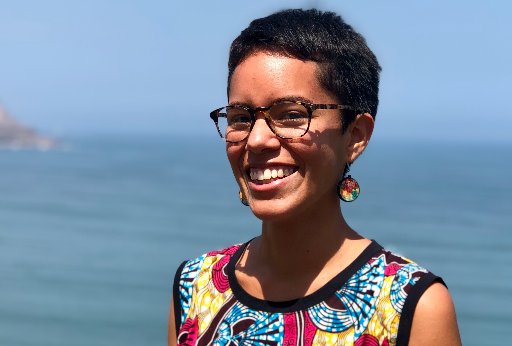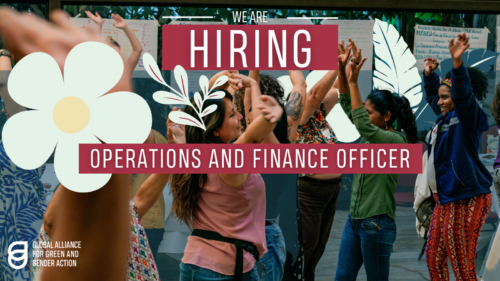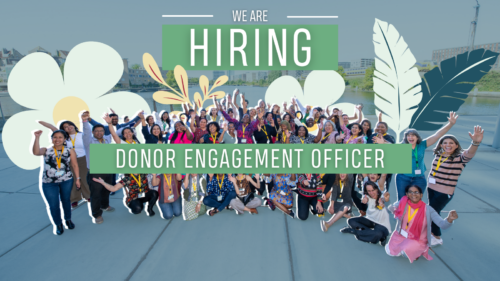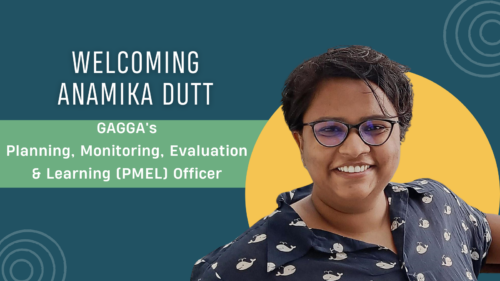Vice Versa: “We are the uncomfortable voice that no one wants to hear”

Peruvian Maria Alejandra Rodriguez Acha, better known as Majandra, is at the helm of FRIDA, the largest feminist fund in the world run by young people. The climate justice- and queer-feminist is a figurehead for young feminists in Lima.
“As the feminist slogan goes: the personal is political,” says Majandra. “I grew up in a society where traditional gender roles predominated. Those roles create expectations about how you should behave as a woman and about your place in the community. From an early age, we are divided into categories, which can be terribly oppressive. I also grew up in a society where violence against women is normalized.”
As a child, Majandra already had to deal with sexism and gender inequality. “From an early age, I have memories of public harassment and places where, even as a child, I was objectified through the eyes of others. Because the subject is so personal, I had a hard time identifying as a feminist at the start of my career. It’s an intimate topic: it’s about me, my family, my friends… it affects us all.”
Majandra is now Co-Executive Director of FRIDA, the world’s largest youth-led feminist fund. The fund is active worldwide and supports no fewer than 200 youth organisations, groups and initiatives. These are often informal collectives, which generally would not be eligible for funding. Both the fund and the supported collectives are fully supported by young people and have built a bridge between feminism and climate activism.
“Both themes deal with dichotomies,” explains Majandra — contradictions and black-and-white thinking such as between man and nature, between races and classes, between what is seen as masculine and feminine, and between rationality and emotion. According to Majandra, this mindset creates a hierarchy between superior and inferior, progression and decline. “For example, people always think that nature is an inexhaustible resource, where everything is there for the taking. We have put ourselves as humans above nature without thinking about the sustainability of our behavior or the ecosystems we affect — the ecosystems on which we depend.”
‘This way of thinking is detrimental. As a result, we continue to justify exploiting the Earth and nature” — as with racism, sexism and other forms of oppression and discrimination. “Life isn’t that black and white. We are part of nature and we are human, we have masculine and feminine qualities. We are not one or the other.”
Majandra also calls this the eco-feminist approach. ‘The fact that women are often more affected by the effects of climate change shows how these two themes are related. Take the extractive sector; a system with a devastating impact. The consequences of this are often felt harshly by the local population, especially by women.” She sees this clearly in her home country: “Peru has a long history of oil spills, which have had devastating consequences for communities that depend on water and soil for their livelihoods. The history of inequality and discrimination against these indigenous communities is not separate from the capitalist motive behind the oil industry, namely exploitation and depletion. It influences and strengthens each other.”
Its consequences, such as climate change, pollution or degradation, are felt the hardest by the groups most dependent on it. “That is why FRIDA mainly supports initiatives that include environmental justice in their approach and approach it from a feminist perspective.”
“FRIDA funds youth initiatives and movements worldwide, mainly from the Global South, that want to make a social impact in their communities. We offer financial resources, among other things. We also see how other philanthropic funds often burden small youth organisations with strict requirements, detailed reporting and lengthy bureaucracy. At FRIDA we do this differently. We ask young feminists to contribute ideas and decide how to spend our budget.”
“In addition, we award scholarships for travel for advocacy and participation in regional or international meetings, so that young feminists from the Global South can also participate in the political decision-making that affects them.” Furthermore, FRIDA organises workshops and training courses, the organisation stimulates meetings and discussions, and offers young feminists a large international network.
“What I also think is important is that we talk to other philanthropic and donor organizations about their approach. Because a shift in resources is not enough. It takes a shift in power, by asking critical questions about privilege, representation and diversity,” Majandra emphasizes. “We are the uncomfortable voice that not everyone wants to hear. The habits we challenge require self-reflection within organisations. That can sometimes be confronting.”

We Are Hiring: Operations and Finance Officer!
DEADLINE EXTENDED! Are you passionate about ensuring efficient financial management and operational excellence to support transformative work in climate, environmental,…

We Are Hiring: Donor Engagement Officer!
DEADLINE EXTENDED! Are you passionate about cultivating relationships and securing funding to support transformative work in climate, environmental, and gender…

Welcoming Anamika Dutt As GAGGA’s Planning, Monitoring, Evaluation & Learning (PMEL) Officer!
Anamika Dutt is a feminist MEL practitioner from India. Anamika believes that stories of change and impact are best heard…
Subscribe to our newsletter
Sign up and keep up to date with our network's collective fight for a gender and environmentally just world.
